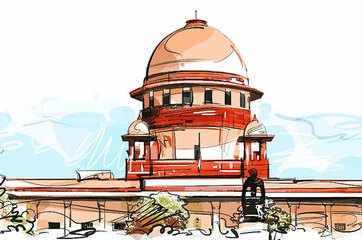Moratorium and Interest waivers: What’s exactly the conundrum?
The unfolding of events related to moratorium and whether the demand of interests waiver is legitimate...
Back in March this year, many of us got to hear about a new term grabbing all the headlines – “Moratorium”. It was a temporary relief to all the loan borrowers by RBI to defer their ongoing EMIs for three months i.e. till 31st May’20. As the COVID tracker continued to flash higher numbers throughout the nation, this assistance was further extended till 31st August’20. But who knew the deadly COVID had other plans to extend its stay and the half yearly economic respite wouldn’t be sufficient for our MSMEs and of course for the 12.2 crore affected salaried employees to be able to pay back their loans.

Hence when on 6th August, RBI Governor Shaktikanta Das addressed the media, all eyes were on further extension of moratorium. However, he refrained from commenting anything on moratorium and we, the people of this nation, with a dejected feel assumed that moratorium is going to end on 31st August. While the banks kept on insisting, that how it’s imperative to bring back the repayment cycles for maintaining the financial health and stability of the economic system, there was a PIL filed in the Delhi High Court on 24th August to extend the loan moratorium for another 12 months or until the COVID situation normalizes. This was not the only PIL moved, as other PILs demanding waiver of interest on deferred EMIs and interest on interest during the moratorium period to also be granted to the borrowers were already doing rounds for our judiciary.

Hence, the apex court intervened and asked the Centre to submit its views on these issues pertaining to moratorium on 1st September’20 and not hide behind the RBI.
During the hearing on this issue, Solicitor General Tushar Mehta, appearing for the Centre and RBI informed the Supreme Court, that the moratorium period on repayment of loans amid the COVID-19 pandemic was “extendable" by two years. He however mentioned that any “post facto" change in the terms of the RBI circulars about non-charging of interest during the moratorium period would be unfair to those who kept paying their EMIs.
“I respectfully state and submit that ex post facto change in the terms and conditions of the offer of moratorium favouring those who availed of it over those who made the extra effort of repaying as per schedule would be grossly inequitable and patently unfair for those who did not avail of the benefits of moratorium initially or gave it up subsequently.”

Hence by now you must have gauged that the duo of Centre and Government was in no mood to waive the interest on loans during moratorium period nor the relief would be provided through a waiver of the interest on interest.
But wait! The climax couldn’t be so boring as well as obvious and hence once again the SC returned in the scene as a messiah for our distressed borrower. The apex court asked the collusion of the Centre, the RBI and the banks to take two more weeks’ time and submit a concrete reply on 28th September on their stand of waiving of interest on interest charged during the moratorium period. Till then no loans can be classified as NPAs.
Phewww… Picture abhi baaki hai!
So, let’s see some arguments that whether the plea of waiving interest on interest seems legit?

The borrower is stressed, can’t pay the principal or the interest now and would want some time to pay the interest. Granted and Accepted!
But not taking an interest on that interest would be unfair on the borrowers who’ve been paying their dues on time.
Let’s take an example:
I have an EMI of 50K per month and I’ve been getting my salary on time. Hence, I can pay my EMIs on their scheduled due dates. Still, I’ll want to take this moratorium maybe for 2 years and deposit my EMI amount of 2 years i.e. 12 lakhs in a RD or in the share market, earn interest and pay off my only loans later. I know many of you might be thinking, what an idea Sirji! However, you missed the underlying in this example. How are banks giving this facility to our borrowers? Through our deposits! Hence, if we keep on waiving or delaying our EMIs, where would banks get money to pay us on our deposits? Banks aren’t a money minting facility, they are just a facilitator. Thence, the onus would automatically shift on the tax payers like us who save their after-tax money in banks as FDs, RDs etc. to earn some interest benefits. Those benefits would ultimately be compromised to provide excess cushion to well-off borrowers. This must have given you reminiscence of our flamboyant Kingfisher owner.
There’s one more reason that banks can’t let go off this interest on interest. It’s the depreciation of money over time. Do you think that the 12 lakhs to be paid 2 years later would fetch the same goods as they would today? I’m sure with the kind of inflation rates we are seeing currently, it would be much lower. And hence this application of extra interest to cover for the lost time value of money.
I’m sure now you’ll have a new perspective while mulling over the judgement to be announced by Supreme Court on 28th September.
See you on next Financial Friday!
Don’t forget to share this story with your friends…

By: Anmol Gupta | Isha Garg



